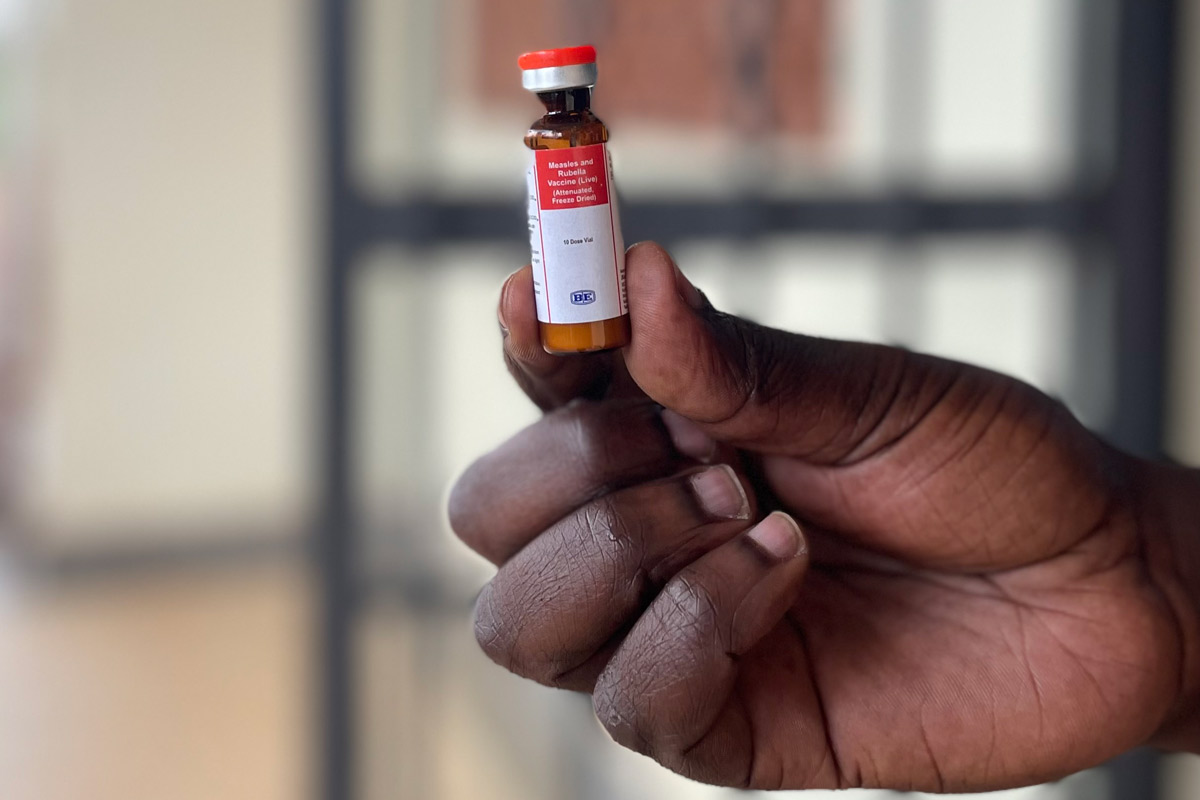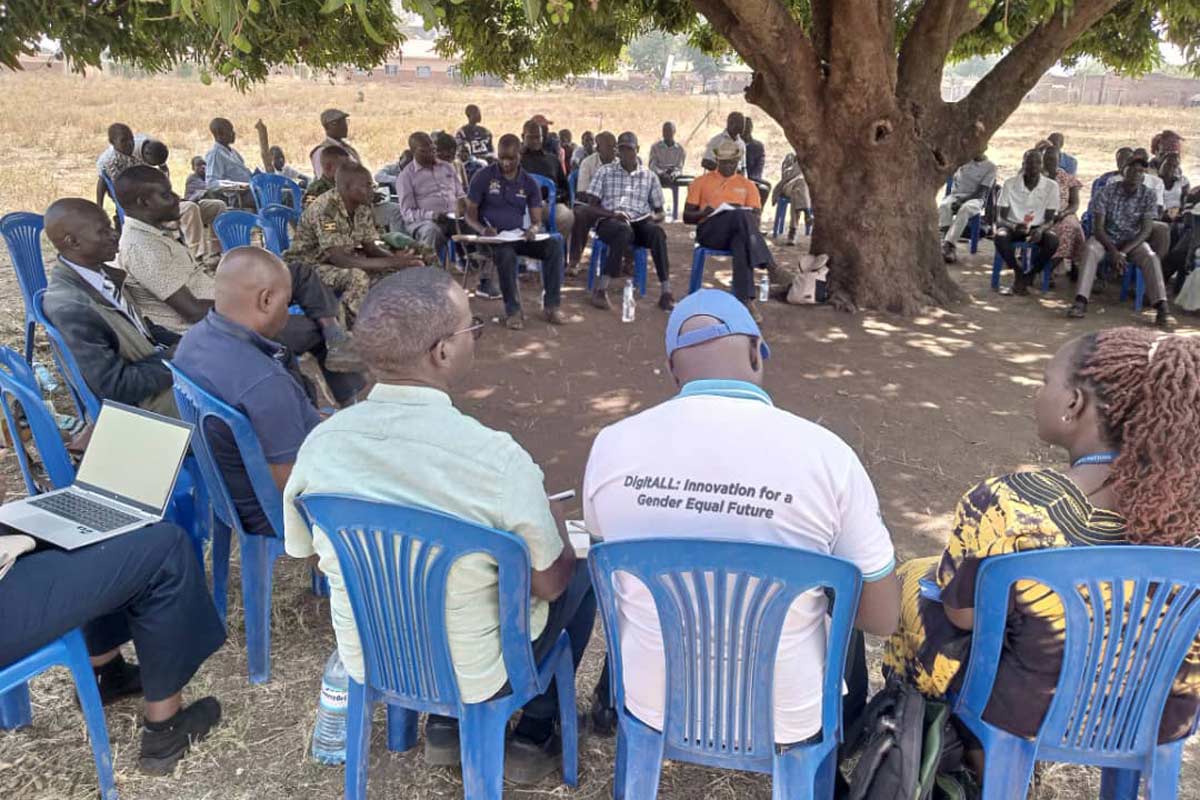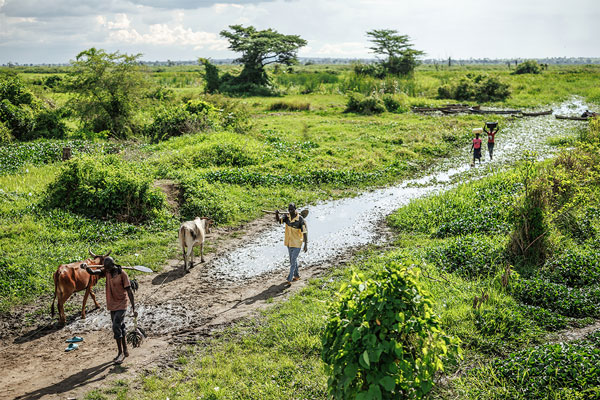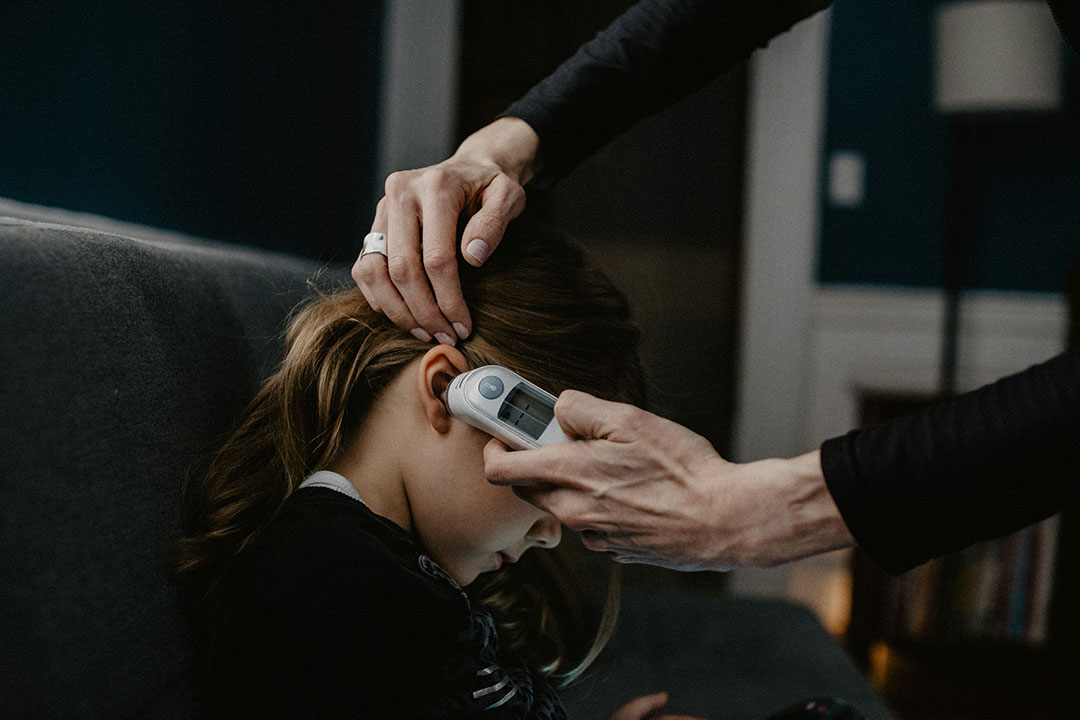“We need these jabs”: How a Ugandan ‘bingwa’ is helping boost demand for COVID-19 vaccines
Amid flagging demand, Doreen Naiga – one of Africa CDC’s COVID-19 vaccination champions – is persuading young folks and persons with comorbidities in Uganda to get immunised.
- 9 May 2023
- 6 min read
- by John Agaba
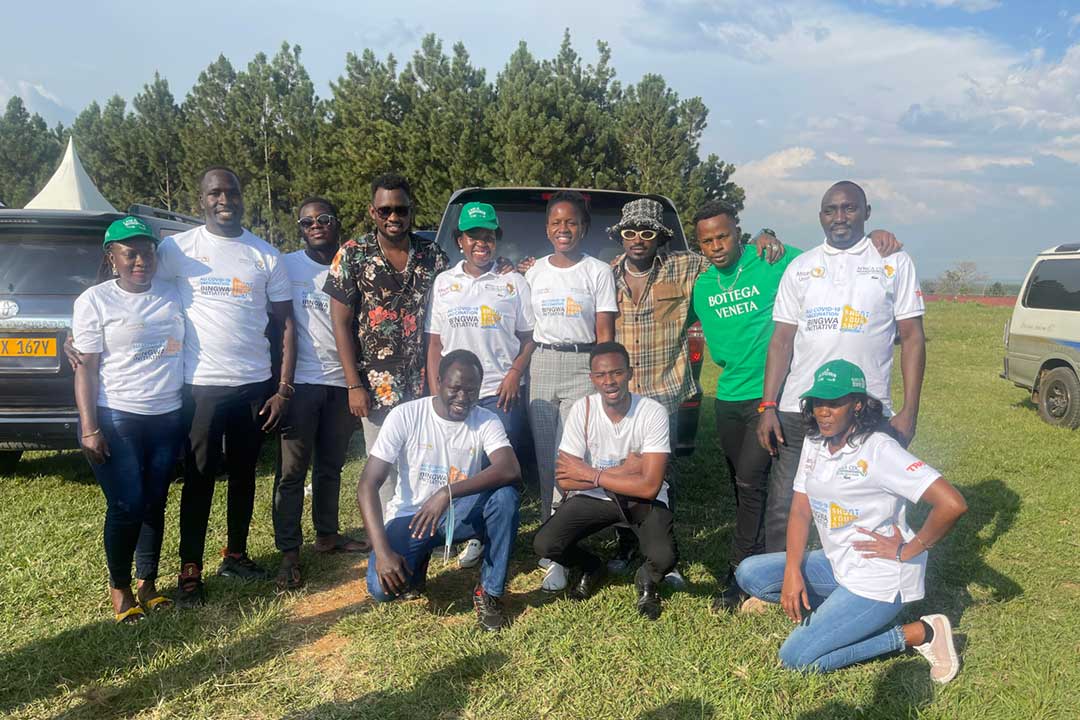
Law student Doreen Naiga was attending an Africa CDC meeting at Speke Resort Munyonyo, an upscale lakeside retreat not far from Kampala, in July 2022, when a speaker uttered an arresting statistic: just two in ten Ugandans were vaccinated against COVID-19.
It wasn't because COVID-19 vaccines weren't available in the East African country, but because Ugandans weren't demanding them. A similar situation prevailed in much of the rest of Africa.
“I took my COVID-19 jab because of Doreen. I’m sure many other people are getting vaccinated because of her work.”
– Noah Nantajja, student
Naiga – who is pursuing her degree at Uganda Christian University (UCU) – felt angry. COVID-19 had killed more than 3,600 in Uganda and 256,000 in Africa. Why weren't people taking the vaccines? She went online and read about vaccine hesitancy in Uganda, and further afield.
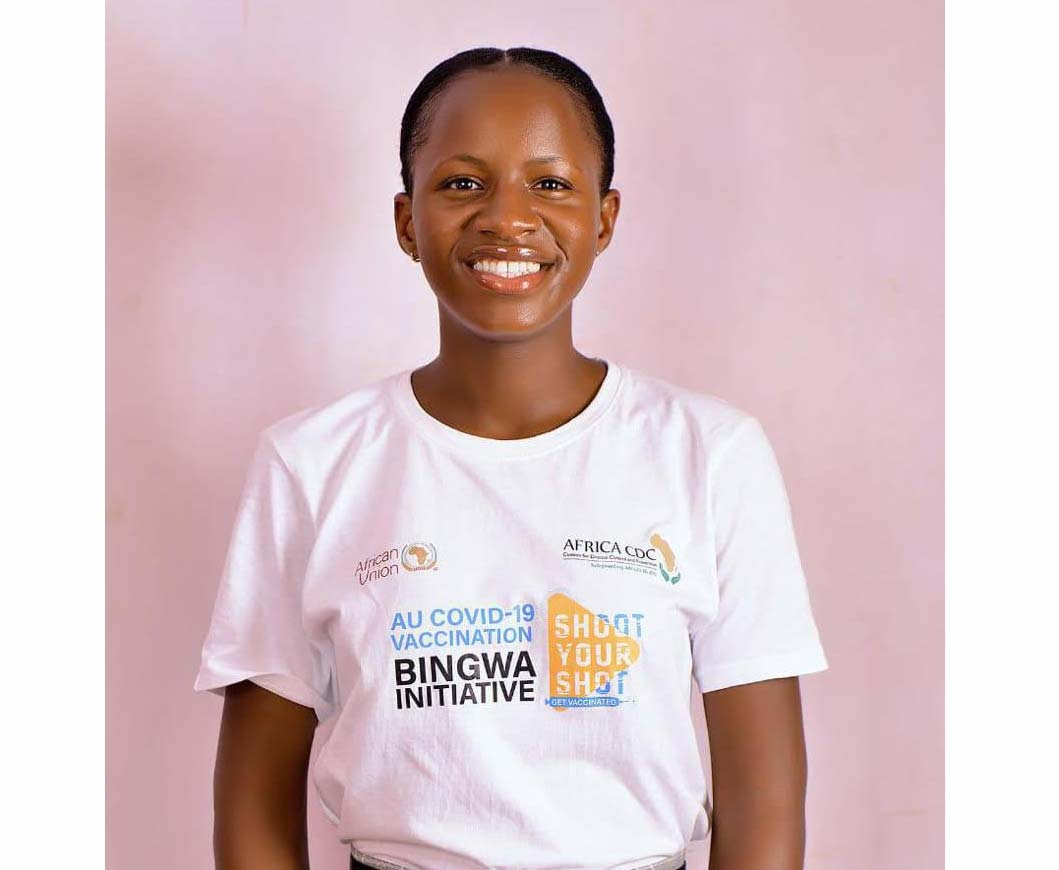
Credit: Doreen Naiga
Two weeks later, she applied to join Africa CDC's team of young people – Bingwas– who are championing the continent's effort to vaccinate its population against COVID-19.
Today the young woman has organised immunisation camps in her rural district of Ssembabule in central Uganda and helped to vaccinate more than 200 people against COVID-19.
She has spoken at community engagements and persuaded young people, university students, and persons with pre-existing comorbidities such as cancer, diabetes and hypertension to get jabbed.
And, apart from this, she uses her Twitter account to share various people's COVID-19 vaccination experiences, in a bid to dispel misinformation about the disease and its vaccines.
"Doreen wants every Ugandan (and African) to vaccinate against COVID-19," said Noah Nantajja, a student from Ssembabule. "She's intentional and persuasive. When she's not in class, she is in student dormitories and communities talking about the importance of vaccination."
"I took my COVID-19 jab because of her," he said. "I'm sure many other people are getting vaccinated because of her work."
But Naiga is just getting started. "Our target, which is also the African Union's, is to advocate for COVID-19 vaccines so at least 70% of people on the continent get immunised," said Naiga in an interview with VaccinesWork.
"When the pandemic initially hit, the challenge in Uganda was an insufficient supply of COVID-19 commodities, vaccines and treatments.
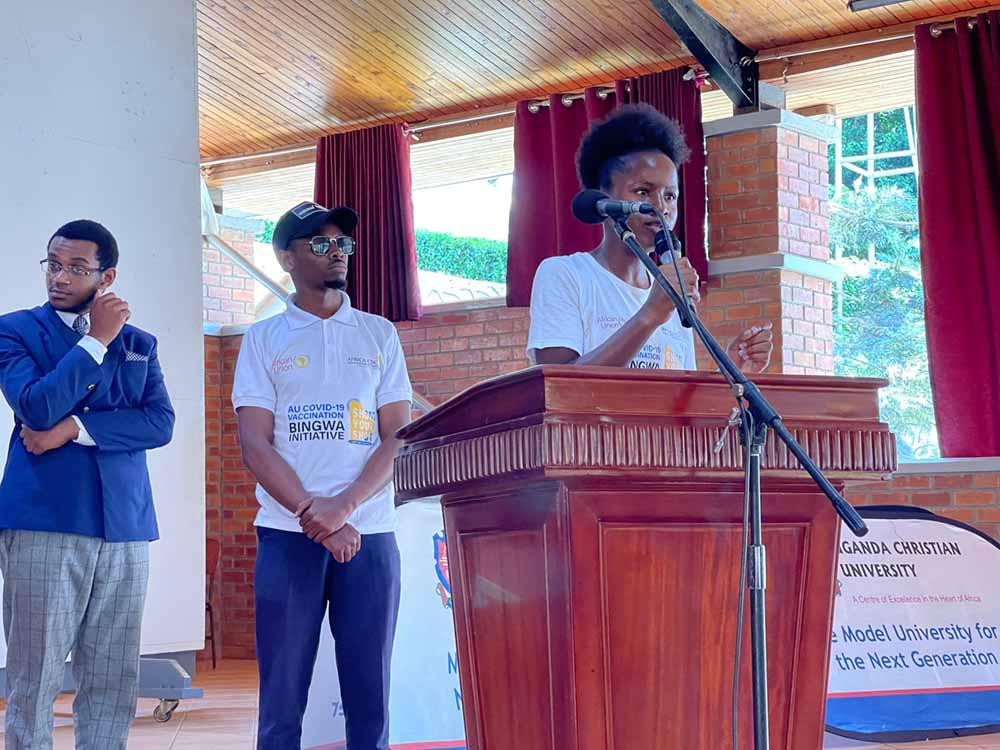
Credit: Doreen Naiga
"Now we have the vaccines… we have to encourage young people who aren't vaccinated against the disease to get immunised; those who have taken one dose to take the second one; and those who have taken two doses to get booster vaccines.
"We need to protect our communities against this virus," she said.
The young woman wants to organise another immunisation drive at her university, UCU, this month, targeting students.
Born in central Uganda, the 24-year-old had always been motivated by the common good, but she'd never imagined herself a leading voice in a continent-wide public health campaign.
Have you read?
After Africa CDC selected her to champion its COVID-19 vaccination drive, Naiga attended a week-long training in Dar-es-Salaam to learn about the disease, its impact, and how to approach and influence people to take its vaccines.
That was at the end of last year. Since then, she's also travelled to Zambia to support the southern Africa country's COVID-19 vaccination drive. And in late April she was in Ethiopia, to support COVID-19 vaccination initiatives in that country.
"The biggest challenge (against COVID-19 vaccination) is misinformation and a feeling in the public that the pandemic isn't a threat anymore," said Naiga.
"Some people think COVID-19 vaccines will reduce their sexual prowess. Some women think the vaccines will cause them to become barren," she said. "They have all these theories that COVID-19 is for whites and that it cannot survive in the tropics."
Yet others think that the pandemic isn't real and that available vaccines aren't safe and don't work.
“This virus is still with us. It has shown that it can mutate and bounce back.”
– Dr Victoria Ndyanabangi, Baylor College's foundation
"We have to fight this misinformation, because governments and donors can't keep procuring expensive jabs that people aren't taking," said Naiga.
"We have to explain to the masses that these vaccines are safe and effective," she said. "We have to show them how the vaccines have helped us to control the pandemic."
Dr Victoria Ndyanabangi, researcher at Baylor College's foundation in Uganda, said health workers have to explain that COVID-19 is still a threat, to persuade people to get immunised.
"Like we have seen in China and recently in India, this virus is still with us," said Ndyanabangi. "It has shown that it can mutate and bounce back."
"This is why it's important everyone takes COVID-19 vaccination," she said. "We need these jabs to guard against severe disease and death in case this virus bounces back."
As of today, 12.9 million Ugandans out of a target of 44.3 million are fully vaccinated against COVID-19, according to Ministry of Health statistics.
About 6.4 million Ugandans are partially immunised, having received one dose. Only 6% of young people between 12 and 17 years have been vaccinated.
Initially, Uganda prioritised COVID-19 vaccination for the most vulnerable, per WHO guidance: people older than 50 years, soldiers, health workers and persons with pre-existing comorbidities.
As more vaccines became available, the country started to inoculate individuals 18 years and above. Today, the vaccine is available to young Ugandans – those aged between 12 and 17 years – too.
"We are working with schools and other community organisations to vaccinate this age group," said Dr Alfred Driwale, who manages the immunisation program at the Ministry of Health.
"We've also engaged religious and cultural leaders and continue to organise community outreaches and talk shows to encourage more people to take COVID-19 vaccines."
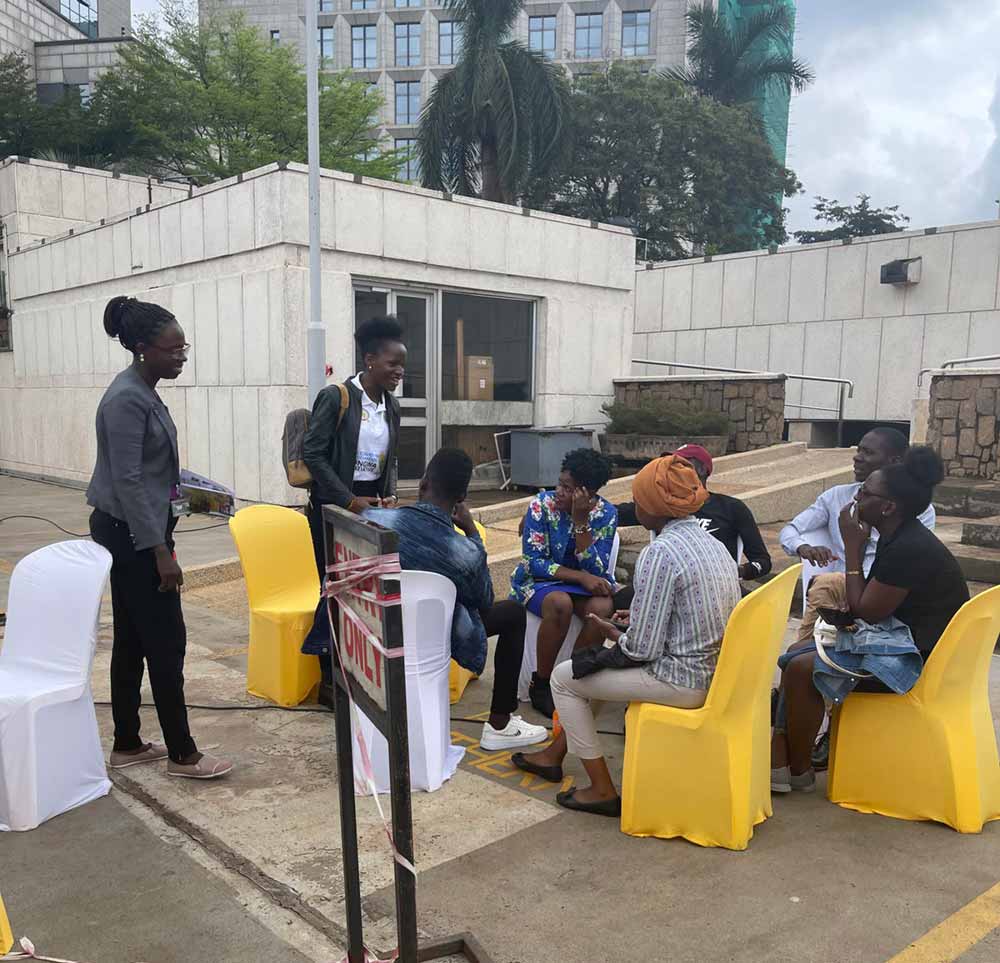
Credit: Doreen Naiga
Dr Daniel Kyabayinze, Director of Public Health at the Ministry of Health, said the country had procured millions of doses to vaccinate eligible populations, including more than 42 million doses provided at no cost to the government by COVAX.
"We have all the vaccines," he said. "Pfizer, Moderna, Oxford's AstraZeneca and Janssen's Johnson & Johnson, etc. They are free at all public health facilities."
Dr Jean Kaseya, Director General at the Africa CDC, writing on the Africa CDC's website, underlined the ipmortance of these COVID-19 vaccine drives, as well as integrating them into routine immunisation for essential childhood vaccines: "We can register good healthcare outcomes if we can reach these communities with routine as well as COVID-19 vaccines, integrating service provision and supplemental vaccination activities."

